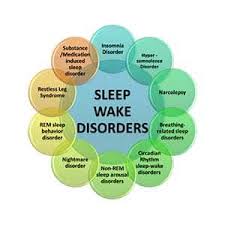Sleep Disorders are essential for overall health, but many people struggle with that affect their well-being and daily life. This article explores various types of sleep disorders, their symptoms, treatment options, and available therapies to improve quality and overall health.
Understanding Sleep Disorders
Sleep disorders are conditions that disrupt normal patterns, leading to difficulties in falling asleep, staying asleep, or experiencing restorative These Sleep Disorders can have serious consequences, affecting cognitive function, mood, and overall health.
Common Types of Sleep Disorders
1. Insomnia
Symptoms:
- Difficulty falling asleep or staying asleep
- Waking up too early
- Feeling unrefreshed after sleep
Causes:
- Stress and anxiety
- Poor sleep habits
- Medical conditions
Treatments & Therapies:
- Cognitive Behavioral Therapy for Insomnia (CBT-I)
- Sleep hygiene improvement
- Medications (prescribed if necessary)
2. Sleep Apnea
Symptoms:
- Loud snoring
- Gasping for air during sleep
- Excessive daytime sleepiness
Causes:
- Obstruction of the airway (Obstructive Sleep Apnea)
- Brain’s failure to send proper signals (Central Sleep Apnea)
Treatments & Therapies:
- Continuous Positive Airway Pressure (CPAP) therapy
- Weight management
- Surgery (in severe cases)
3. Narcolepsy
Symptoms:
- Sudden daytime sleep attacks
- Cataplexy (loss of muscle control)
- Sleep paralysis
Causes:
- Deficiency in hypocretin (a brain chemical regulating wakefulness)
- Genetic factors
Treatments & Therapies:
- Stimulant medications
- Lifestyle modifications
- Scheduled naps
4. Restless Legs Syndrome (RLS)
Symptoms:
- Uncomfortable sensations in the legs
- Urge to move legs, especially at night
- Sleep disturbances
Causes:
- Iron deficiency
- Nerve dysfunction
Treatments & Therapies:
- Iron supplements
- Medications affecting dopamine levels
- Lifestyle changes
5. Circadian Rhythm Disorders
Symptoms:
- Difficulty sleeping and waking at desired times
- Daytime fatigue
Causes:
- Shift work
- Jet lag
- Delayed Sleep Phase Syndrome (DSPS)
Treatments & Therapies:
- Light therapy
- Melatonin supplements
- Scheduled sleep-wake times
6. Parasomnias
Symptoms:
- Sleepwalking
- Nightmares and night terrors
- Talking during sleep
Causes:
- Stress and anxiety
- Sleep deprivation
- Neurological conditions
Treatments & Therapies:
- Improving sleep hygiene
- Therapy for stress management
- Medications (if necessary)
Diagnosing Sleep Disorders
1. Sleep Study (Polysomnography)
A study monitors brain activity, breathing patterns, and muscle movements to diagnose sleep disorders.
2. Home Sleep Tests
These simplified tests help detect conditions like sleep apnea from the comfort of home.
3. Actigraphy
A wearable device that tracks sleep patterns over time.
General Treatment Approaches for Sleep Disorders
1. Behavioral and Lifestyle Changes
- Maintaining a consistent sleep schedule
- Avoiding caffeine and electronics before bed
- Creating a comfortable sleep environment
2. Cognitive Behavioral Therapy (CBT)
A structured, evidence-based therapy is effective for treating insomnia and anxiety-related sleep disorders.
3. Medications
- Sleep aids (for short-term use)
- Stimulants for narcolepsy
- Muscle relaxants for RLS
4. Alternative Therapies
- Acupuncture
- Yoga and meditation
- Aromatherapy
Conclusion
Understanding their symptoms, and treatments can help individuals seek proper intervention. If you struggle with sleep, consulting a healthcare professional can lead to personalized treatment strategies that improve sleep quality and overall well-being. Prioritizing good sleep hygiene and adopting the right therapy can significantly enhance sleep and health.
